Coronavirus Australia live news: PM’s plea to Andrews over troops revealed in letters; Premier ‘not sure’ on laws impact
Scott Morrison personally appealed to Daniel Andrews to accept 1000 Australian Defence Force personnel as the second wave of COVID-19 took hold, newly released letters confirm.
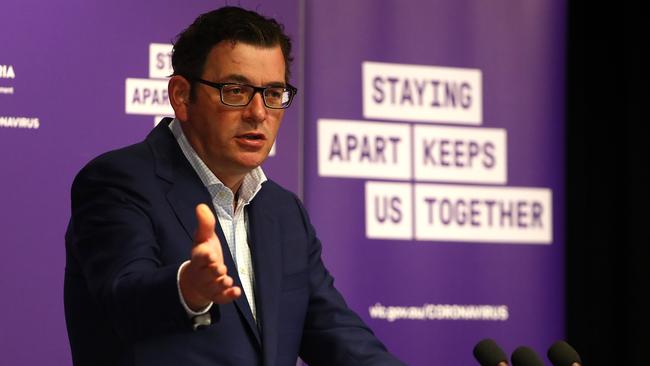
- Andrews ‘not sure’ over power grab impact
- Victoria records 15 cases, 5 deaths
- US reaches grim new milestone
- Link between Covid, Parkinson’s
Welcome to The Australian’s rolling coverage of the ongoing coronavirus pandemic. Victorian Premier Daniel Andrews is ‘not sure’ if his hardline laws would have had any affect on Covid outcomes so far. The state and national peak bodies representing barristers have raised concerns about the coronavirus omnibus bill, saying it enables people who have not committed an offence to be detained on “broad and subjective” grounds.
Victoria’s health authorities are confident Melbourne can ease out of its lockdown earlier as the city’s 14-day average cases dipped below 30.
Simon Benson 11pm: Bankruptcy laws to keep businesses afloat
Thousands of small businesses facing imminent closure will be thrown a lifeline under new US-style Chapter 11 bankruptcy laws that will allow them to trade their way out of insolvency and avoid being wound up by “vulture” administrators.
The stay of execution for small and family-run businesses as well as sole traders owing less than $1m to creditors will be the most significant reform to corporations and insolvency laws in 20 years and will potentially save thousands more small companies that are on the brink of collapse.
The move could save tens of thousands of jobs that are under threat, with almost 2000 micro businesses having been put into administration between April and July. It will have no cost to the budget but will be framed as significant supply-side reform
Josh Frydenberg said the new laws would strip administrators from the process and apply a key feature of the US Chapter 11 laws that allows directors and owners of the company to maintain control of their business as they seek to restructure and trade out of insolvency.
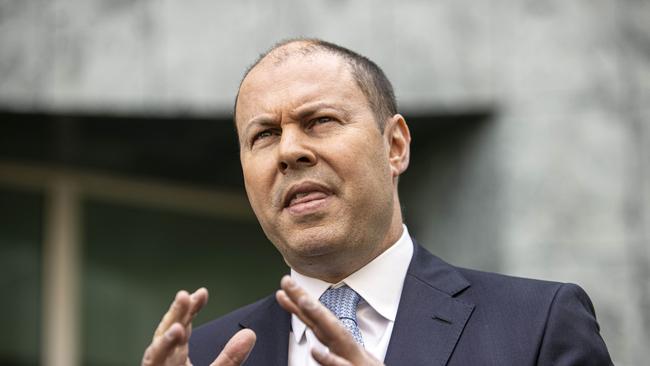
Ewin Hannan 10.30pm: Then there were two: will anyone own up?
As each day of Victoria’s hotel quarantine inquiry passes, the number of known unknowns grows.
Not only did Jobs Minister Martin Pakula not know who made the decision to engage private security companies at quarantine hotels, he didn’t know his own department was entering into contracts with private firms to provide the security.
Giving evidence to the inquiry on Wednesday, Pakula said he could not recall “specifically” how he became aware private security was engaged and contracted by his department.
“It may have been from media reportage, it may have been from a conversation, but I don’t have a specific recollection of how I became aware of that,” he said.
Olivia Caisley 10pm: Aged-care regulator misses 83pc of homes
The nation’s aged-care regulator has checked infection control procedures in just one in six facilities across the nation, despite the sector facing the highest death toll from the COVID-19 pandemic.
In Victoria, where 607 aged-care residents have died with COVID-19, the Aged Care Quality and Safety Commission had checked infection control systems in just 21 per cent of homes as at September 11, according to federal Department of Health data. In NSW, just 131 of 883 homes or less than 15 per cent had been checked, while just 81 of 472 Queensland facilities (17 per cent), had an infection control monitoring visit.
Aged Care Minister Richard Colbeck’s state, Tasmania, had received the most inspections, with 70 per cent of facilities getting a visit from the federal watchdog.
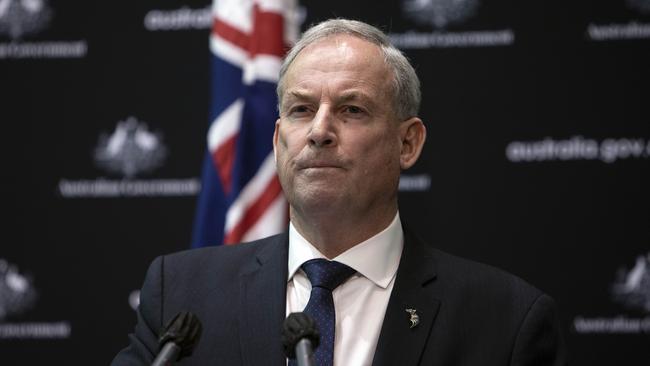
Rachel Baxendale 9.15pm: Lawyers lash detainment bill
Lawyers for the Andrews government will seek to keep the data relied upon to extend Melbourne’s coronavirus curfew secret by claiming public interest immunity when the matter comes before Victoria’s Supreme Court on Monday next week.
The move comes amid a separate backlash from the legal fraternity over hardline new laws the Victorian government is seeking to pass, which would empower authorities to detain innocent people on suspicion that they may be at risk of breaching coronavirus restrictions.
Supreme Court Justice Timothy Ginnane on Wednesday ordered Victoria’s Deputy Public Health Commander Michelle Giles to give a summary “of the data, including the approximate number of pages of data on which she relied”, in making any case for the curfew, which currently requires Melburnians to remain at home, other than for permitted work or medical care, between 9pm and 5am.
Rachel Baxendale, Tessa Akerman 8.45pm: Victorian lockdown to ease but not by much
Daniel Andrews has confirmed Sunday’s relaxation of coronavirus restrictions will go further than previously outlined in his reopening roadmap, but the Victorian Premier says the exact details are “nowhere near settled” and will depend on modelling of case numbers from recent weeks.
Under the roadmap, Melbourne needed to reach a 14-day daily average of between 30 and 50 new cases of coronavirus by Sunday in order to move to a very slight easing of restrictions that would enable public outdoor gatherings of up to five people from up to two households, the resumption of childcare and a staged return to the classroom for Prep to Grade Two and VCE students.
Stay-at-home restrictions and a 9pm to 5pm curfew are to remain in place until October 26, and would be relaxed under the government’s plan only if Melbourne reaches a 14-day daily average of fewer than five cases, with fewer than five cases with an unknown source over the entire fortnight.
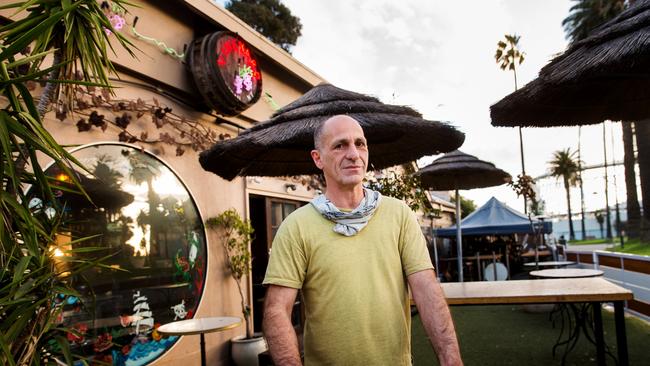
Eric Sylvers, Margherita Stancati 8.15pm: How Italy is resisting second wave
Months after Italy’s lockdown against the coronavirus ended, Enrica Grazioli still sanitises everything that comes into her Milan apartment, wears face masks diligently and limits interactions between her sons and their grandparents.
Grazioli, a self-proclaimed social butterfly who loves to cook for guests, still hasn’t had friends over for dinner since the virus struck. “Am I overdoing it?” says Grazioli. “Maybe, but we had a national tragedy of epic proportions and you don’t quickly forget something like that.” Italy, the first nation outside Asia to suffer a major coronavirus outbreak, had one of the world’s worst death tolls this spring. Overflowing hospitals in parts of northern Italy had to choose which patients got the last intensive-care beds. The Italian army drove truckloads of victims out of the city of Bergamo, which couldn’t cope with the dead.
That shocking experience helps explain why Italy is so far having greater success than many other European countries in limiting the pandemic’s second wave.
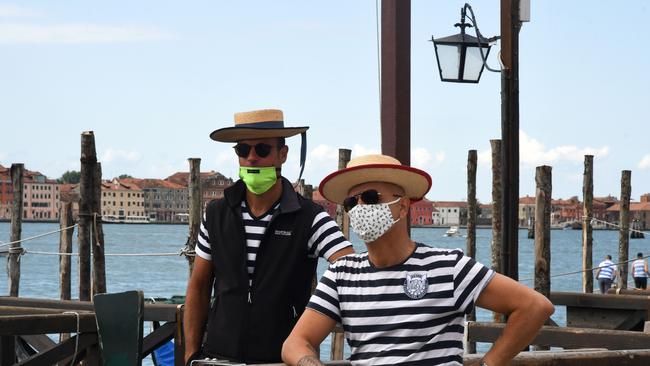
Rosie Lewis 7.50pm: Morrison’s appeal to Andrews over troops
Scott Morrison personally appealed to Victorian Premier Daniel Andrews to accept an offer of 1000 Australian Defence Force personnel as the state’s second wave of COVID-19 took hold, newly released letters reveal.
Obtained by Sky News through freedom-of-information laws, the letters — sent on July 4, 6 and 11 — show the Prime Minister’s increasing concern with the escalating number of coronavirus cases and the state’s ability to contain the outbreak.
On July 11, Mr Morrison said about 1000 ADF personnel could work with Victoria Police in a combined operation to help respond to the crisis and reassure the community.
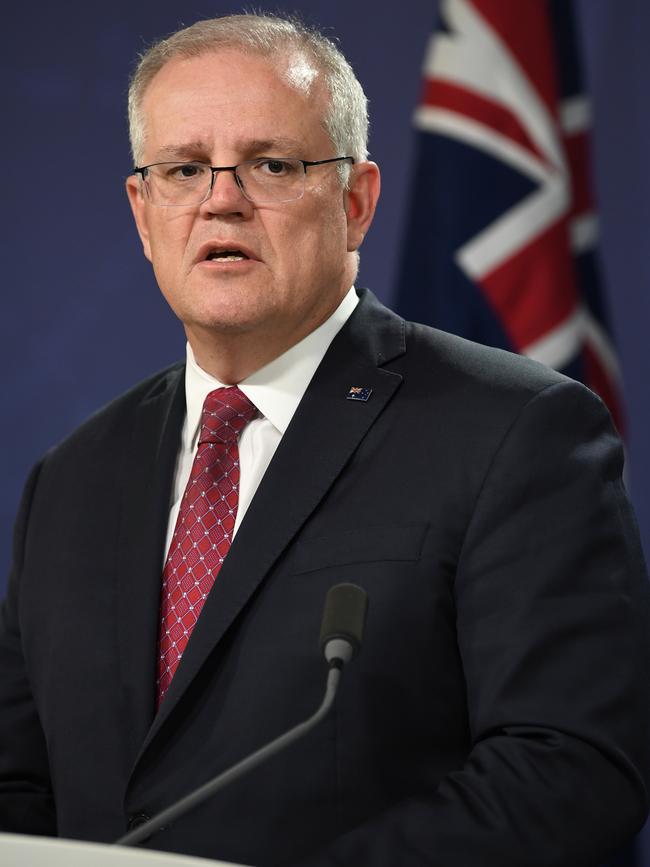
“It is critical to the containment of the virus that the now thousands of people in isolation and quarantine are carefully tracked by phone and personal visits to ensure compliance (and to ensure their welfare),” Mr Morrison said.
“A model successfully used in previous deployments in other jurisdictions, involves an ADF member paired with a police officer in a team of two. This allows the legal enforcement powers to be exercised by state and territory police, supported by ADF members. It will allow a significant expansion of compliance and welfare activity.
“The VicPol/ADF team model could also quickly be deployed to expand the ability to support containment rings around Metropolitan Melbourne/Hume Shire.”
Offers of commonwealth support were also made on July 4, before Melbourne re-entered a stage three lockdown which at the time was only meant to last six weeks, for planning and logistics, clinical efforts, community engagement and contact tracing.
The Department of Prime Minister and Cabinet and the Defence Department made a 149-page submission to Victoria’s hotel quarantine inquiry confirming the three letters existed.
Mr Andrews has stood by his statement to a parliamentary committee hearing that it was “fundamentally incorrect to assert that there was hundreds of ADF staff on offer and somehow someone said no” at the start of the pandemic.
READ MORE: Police Minister ‘cranky’, in the dark on guards
Dominic Chopping 7.25pm: Nobel winners to receive awards at home
Nobel Prize winners won’t be collecting their medals from the King of Sweden in the usual Stockholm ceremony this year due to the coronavirus pandemic, organisers announced on Wednesday.
The prizes are due to be announced next month and are usually presented in the Swedish capital’s concert hall in December, but this year a televised event will see winners handed their awards in person in their own countries.

Laureates will most likely receive their award at a Swedish embassy or their university, the Nobel Foundation said.
The lavish Nobel banquet had already been cancelled due to the pandemic but this year’s winners will be invited to next year’s award ceremony and banquet.
“This is a very special year — when everyone must make sacrifices and adapt to completely new circumstances — but we will be paying tribute in various ways to the laureates, their discoveries and contributions,” said Lars Heikensten, Executive Director of the Nobel Foundation.
The Nobel Peace Prize ceremony which is usually held in Oslo City Hall has also been cancelled. Instead, a scaled-down award ceremony will be held at the University of Oslo with the laureates physically or digitally present.
The 2020 Nobel Prizes will be announced between October 5 and October 12.
Dow Jones
READ MORE: Europe in clutches of its second wave
AFP 6.55pm: Huffy fashionistas as Milan opens
Getting a front-row seat to Milan’s fashion week is harder than ever this year, with uninvited influencers and buyers nursing bruised egos as the shows start under coronavirus restrictions on Wednesday.
The virus, which is resurgent in Europe, forced many luxury houses to put off confirming their presence until the last minute — and in the end, only a third have committed to appearing.
Nevertheless, said the Italian fashion chamber’s head Carlo Capasa: “In this year marked by the COVID-19 epidemic, fashion has demonstrated, despite the difficulties that lie ahead, a great strength and sense of unity.”
Missoni, the Italian label known for its explosions of colour, will start, presenting its new collection virtually, just like 41 other labels among the 64 spring/summer 2021 catwalks on the calendar.
Brands from Moschino to Versace and Prada have opted to simply stream their shows on social media.
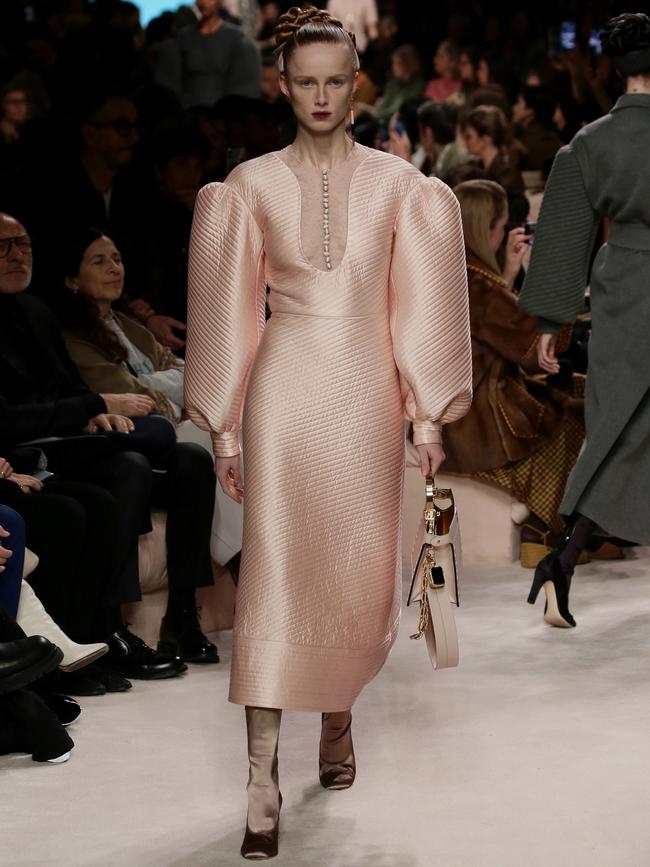
Not so Giorgio Armani, who will be showing his collection on Italian prime-time television Saturday.
Twenty-two houses are braving a live audience, from Fendi and Dolce&Gabbana to Etro, Ferragamo and Max Mara.
“Organising a fashion show with public present is a real headache at the moment,” confesses an organiser at a major fashion house, who preferred to remain anonymous.
“The number of seats has been drastically reduced and the seating plan, a diplomatic and political Tetris at the best of times, is driving us wild. We don’t want to offend anyone, but we don’t have enough room for everyone,” he said.
READ MORE: Four steps to elevate your interior style
Remy Varga 6.25pm: Victorian health official defends bungles
Victoria’s top health bureaucrat says the state’s second wave is a “matter of profound regret” but has defended her department’s handling of the crisis.
Department of Health and Human Services Secretary Kym Peake denied her department failed to “discharge the functions it had been provided for”.
“It is a matter of profound regret to me as the Secretary of the Department of Health and Human Services that we experienced a second wave in Victoria and all of the consequences that came with that,” she said.
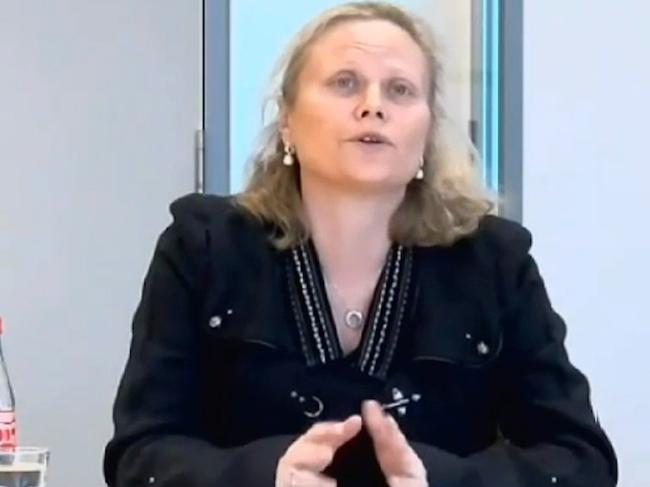
“But I know that my staff and the staff of DJPR spent thousands and hundreds of hours seeking to prevent that outcome.
Ms Peake said the control structures were appropriate but acknowledged there were lessons and improvements to be made.
“It wasn’t perfect but there was enormous care and diligence to continually address risks as they arose,” she said.
Poor infection control among security guards is believed to have sparked the state’s second wave, which has kneecapped the economy and claimed more than 720 lives.
The Department of Health and Human Services was the control agency but Ms Peake has denied this meant her department was responsible for private security, saying guards were the responsibility of the Department of Jobs, Precincts and Regions.
Arthur Moses SC, who is representing Unified Security, asked Ms Peake: “Is this language that you have been using of joint operations and shared responsibility... is bureaucratic speak avoiding the responsibility of your Department as set out in that plan. Do you accept that?
Ms Peake replied: “No, I do not accept that at all.”
READ MORE: Police Minister ‘cranky’, in the dark on guards
AFP 6pm: Japan may allow foreign nationals next month
Japan is considering easing strict coronavirus border restrictions from October to allow more foreign nationals to enter, local media reported on Wednesday.
Tourists would still be banned and only longer-term visas approved, the reports said, as the nation looks to rebuild its economy and prepare for the postponed Olympics next year.
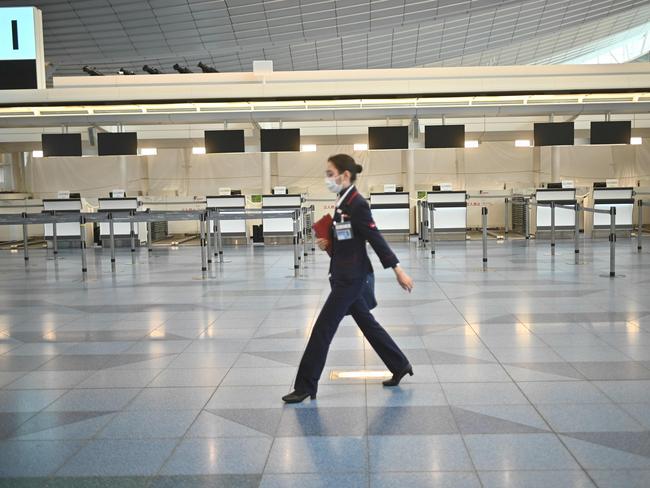
Japan has banned entry for foreigners from most countries, but has been negotiating the gradual resumption of cross-border business travel.
Business visitors are already allowed from seven places — including Thailand, Vietnam and Taiwan.
This limited travel resumption has not resulted in additional virus cases, so the government is now considering letting in eligible visa-holders from all countries, the Asahi Shimbun newspaper reported, citing government sources.
Several other local media outlets reported similar stories, also citing unnamed sources. Arrivals would be capped at 1000 per day and the minimum stay would be three months, they said.
An immigration agency official could not confirm the reports, saying only that negotiations on business travel resumption were ongoing with several countries.
Government spokesman Katsunobu Kato said ministers “will study how to resume accepting new visitors while preventing a resurgence of infections”.
“We will deal carefully with the issue while keeping an eye on the virus situation,” he added.
With the postponed Olympics due to open in July, discussions are also ongoing about how to handle the arrival and movements of athletes and spectators.
READ MORE: Rudd: China’s backflip on economic reform
Rachel Baxendale 5.30pm: Active aged care cases fall by 44; 612 deaths in total
There are 284 active cases of coronavirus linked to Victorian aged care facilities as of Tuesday – 44 fewer than on Tuesday – despite four of Wednesday’s 15 new cases being linked to aged care.
As of Wednesday there have been 612 coronavirus deaths linked to aged care facilities in Victoria, including all five deaths reported in the 24 hours to Wednesday.
The 10 aged care outbreaks with the highest cumulative total numbers of cases as of Wednesday and deaths as of September 8 (the most recent date for which data is available) are:
— 256 cases and 18 deaths linked to BaptCare Wyndham Lodge Community in Werribee, in Melbourne’s outer southwest (an increase of one case since Tuesday);
— 219 cases and 35 deaths linked to Epping Gardens Aged Care in Epping, in Melbourne’s north;
— 216 cases and 44 deaths linked to St Basil’s Homes for the Aged in Fawkner, in Melbourne’s north;
— 166 cases and 17 deaths linked to Estia Aged Care Facility in Ardeer, in Melbourne’s west;
— 140 cases and 20 deaths linked to Kirkbrae Presbyterian Homes in Kilsyth, in Melbourne’s outer east;
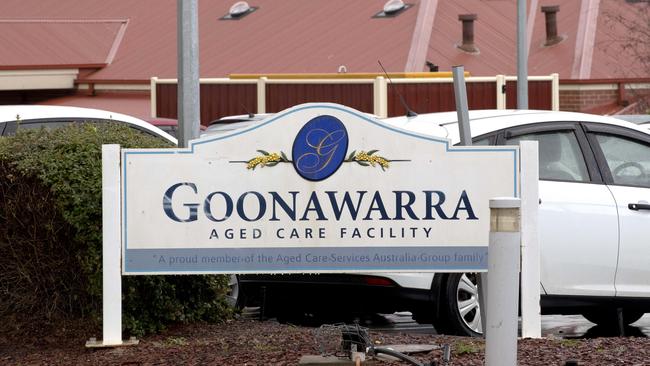
— 131 cases and 11 deaths linked to BlueCross Ruckers Hill Aged Care Facility in Northcote, in Melbourne’s inner north;
— 128 cases and 20 deaths linked to Twin Parks Aged Care in Reservoir, in Melbourne’s north;
— 124 cases and eight deaths linked to Cumberland Manor Aged Care Facility in Sunshine North, in Melbourne’s west;
— 122 cases and 17 deaths linked to Japara Goonawarra Aged Care Facility in Sunbury, in Melbourne’s outer northwest;
— 121 cases and 10 deaths linked to Estia Aged Care Facility in Heidelberg, in Melbourne’s northeast;
Non-aged care outbreaks with the highest numbers of active cases on Wednesday include:
— 19 active cases linked to the Casey community outbreak involving at least seven households in Melbourne’s outer southeast, down from 22 active cases on Tuesday (total cases: 43 – no increase since Sunday);
— 12 active cases linked to Footscray Hospital in Melbourne’s inner west, up from 11 cases on Tuesday (total cases: 18 – an increase of one since Tuesday);
— 10 active cases linked to The Alfred Hospital in Melbourne’s inner southeast — up from seven on Tuesday (total cases: 11 – up from eight on Tuesday);
— Three active cases linked to Dandenong Police Station in Melbourne’s outer southeast – down from six active cases on Sunday (total cases: 18 — an increase of one from Wednesday’s figures).
READ MORE: Trump savages China over virus, environment
Rachel Baxendale 5.15pm: Aged care, hospital, police station links to cases
Of Victoria’s 15 new coronavirus cases on Wednesday, 10 have been linked to outbreaks, while five remain under investigation.
Of those 10, four have been linked to outbreaks at the following aged care facilities:
— Baptcare Wyndham Lodge Werribee, in Melbourne’s outer southwest. One of Monday’s new cases had also been linked to this facility, which is home to Victoria’s largest-ever cluster of 256 cases, and had been linked to 18 deaths as of September 8;
— Estia Keilor, in Melbourne’s northwest. This facility was also linked to new cases on Tuesday. As of September 8, this facility had been linked to nine cases. It is understood this cluster began when a resident returned from being treated for an unrelated condition at Footscray Hospital, having contracted coronavirus;
— Japara Elanora in Brighton, in Melbourne’s bayside southeast. As of September 8, this facility had been linked to 66 cases and seven deaths;
— Edenvale Manor in East Keilor, in Melbourne’s northwest. This is the first time DHHS has publicly mentioned any cases linked to this facility.
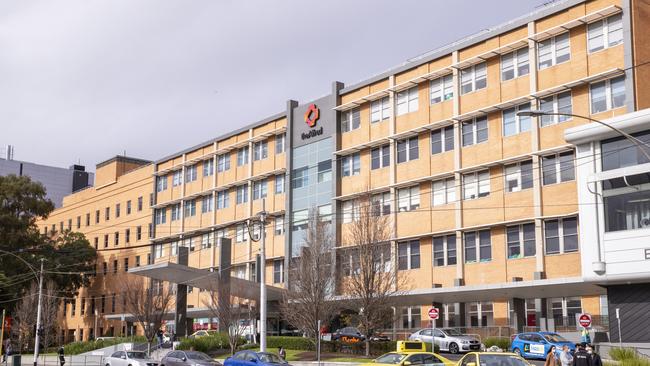
A further four cases have been linked to existing outbreaks in the following settings:
— The Alfred Hospital. Currently 10 active cases are linked to this cluster (total cases: 11);
– Dandenong Police Station. Currently three active cases are linked to this cluster (total cases: 18);
DHHS says the remaining two cases linked to outbreaks are “linked to complex cases which remain under investigation”.
No further information has been provided regarding these “complex cases”.
Of 20,100 people who have had coronavirus in Victoria since the pandemic began, 18,713 have recovered — an increase of 85 since Tuesday, although this number includes reclassified historic cases.
Of 554 active cases in Victoria on Monday, 537 are in people in metropolitan Melbourne, 14 are in people from regional Victoria, and three are from unknown locations or subject to further investigation.
Of the total number of cases since the pandemic began, 18,710 have been in people from Melbourne, while 1192 have been in those from regional Victoria.
There have been 9581 cases in men and 10,506 in women.
The total number of cases in health workers has increased by three since Tuesday, to 3510, despite the number of active cases in health workers falling by one to 73.
There are four cases linked to residential disability accommodation — all of them in staff — the same number as on Tuesday.
READ MORE: Travel-starved scramble for SA
Rachel Baxendale 4.55pm: Premier defends keeping curfew in place
Victorian Premier Daniel Andrews said on Wednesday morning he did not know whether his government would be claiming public interest immunity to avoid handing over the data.
“The absolutely frank answer to you is I do not know, nor am I acquainted with what documents the court has sought or parties to that action have sought, and that I think speaks to the fact that I’m in no way involved in that matter,” Mr Andrews said.
“That is a matter that is being dealt with by appropriate legal teams and others who are called in that action. That’s not a matter that is on my desk.”
Asked whether there was any reason in principle why documents detailing the justification for the curfew currently impose on Melburnians could not be made public in the interests of transparency, Mr Andrews said: “The rules, the practice around public interest immunity, Cabinet in-confidence; a whole range of different things are well known and well understood, but it is incredibly difficult to make broad statements unless you know and understand the context and nature of the documents being sought.”
“I have no such knowledge and I am in no position to even provide even a broad commentary on that,” Mr Andrews said.
The Premier also defended the curfew, saying he had “no announcements to make” about lifting it prior to his road map date of October 26, despite Victoria’s 14-day daily average number of new coronavirus cases falling below 30 on Wednesday.
“The curfew provides police with an easily enforceable rule, it means less people going and visiting friends, and accordingly, it will be in place for as long as it needs to be in place to get these numbers down and keep them down,” Mr Andrews said.
“It won’t be there forever. It’s there whilst ever it serves a really useful purpose, and that is to make sure that people are not out and about, where it gets into this situation where Victoria Police have got to sit there and have interminable, lengthy discussions with people, having all sorts of manifestly incorrect, false statements about where they were going.
“You’ve either got a reason to be out or you don’t, and the curfew makes that easier to enforce.
“It doesn’t change the reasons for which you can leave your home though. I think I’ve gone to this point at some length.
“The curfew does not change the reasons for which you can leave your home, and to the best of my analysis, the two things you might be unable to do is to go and exercise in the middle of the night, or to go shopping in the middle of the night, and I apologise for any inconvenience that causes, but the benefit far outweighs that.”
Asked what health risk was posed by someone exercising in the middle of the night, Mr Andrews said: “Well, that is not allowed so that question doesn’t really need answering.”
READ MORE: Senator eyes lower house switch
Patrick Commins 4.30pm: Keating launches scathing RBA attack
Paul Keating has launched an extraordinary attack on the Reserve Bank’s performance through the Covid recession. Read more here
Remy Varga 4pm: Government fights order to hand over data
The Victorian government intends to claim public interest immunity after it was ordered to hand over data used to extended the curfew.
Justice Timothy Ginnane has ordered Associate Professor Michelle Giles to give a summary “of the data, including the approximate number of pages of data on which she relied”.
The data is specified to relate to the part of Professor Giles’ statement that said: “I had seen from the data a clear and direct correlation between the effect of
the Stage 4 restrictions and the reduction of case numbers”.
Professor Giles has been dragged into a legal action brought by Liberal Party member and Mornington Peninsula business owner Michelle Loielo against the Victorian government challenging the curfew.
Victoria’s curfew was put in place on August 2 to run from 8pm to 5am.
From September 14 it was loosened by Prof Giles to 9pm to 5am and was due to expire on October 11, the Supreme Court of Victoria previously heard.
Prof Giles is an infectious disease physician who had only been in the deputy public health commander role for nine days when she signed the order extending the curfew, making her the subject of the anti-curfew lawsuit.
The matter is due to next appear before the Supreme Court on Monday September 28.
READ MORE: Property market will ‘see softness’
Rachel Baxendale 3.35pm: Andrews unable to clarify impact of strict laws
Victorian Premier Daniel Andrews says he is “not sure” whether there have been any instances in the coronavirus pandemic so far where a different outcome would have been achieved with hardline new laws which would enable people to be detained on suspicion that they may be at risk of breaching coronavirus restrictions.
The Andrews government is seeking to pass legislation as part of an otherwise uncontroversial “COVID-19 Omnibus (Emergency Measures) and Other Acts Amendment Bill”, which would allow any person the Department of Health and Human Services deems appropriate to become an “authorised officer”, and enable authorised officers to detain people on the belief that they are unlikely to comply with emergency directions.
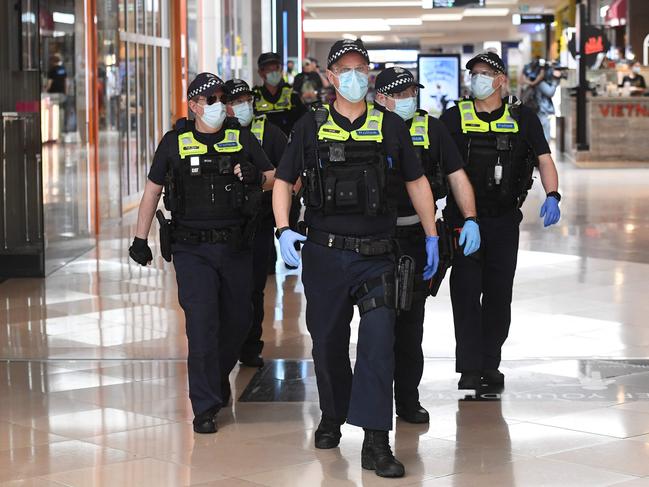
Key upper house crossbenchers have signalled that they will oppose the measure, amid calls from eminent legal figures and the Victorian Bar for the legislation to be rejected.
Mr Andrews on Wednesday argued the provisions were necessary and would be applied in a “proportionate” manner, but the Premier was unable to specify circumstances where they had previously been required.
“I‘m not sure,” Mr Andrews said when asked whether he was aware of situations during Victoria’s coronavirus pandemic where having the legislation in place would have resulted in a different outcome.
“It would always be a fine judgment about whether these powers were used. That’s the key point here,” he said.
“These are not blanket decisions, and the fact that people have the power to do something, and the authority and clarity to do something, doesn’t presuppose that they will, and they will be required to make very detailed, personal, on the merits of the individual circumstances of the case, those fine judgments, and that in itself is a very important part of any process.
“These are not blanket rules, but we certainly have seen some people who have had the virus and been unwilling to follow the rules.
“We’ve had lots of different examples. I wouldn’t say it was hundreds or thousands of people, but it doesn’t need to be, but these would not be powers that would be exercised easily or lightly.
“They would be the subject of a chain of command, a structure, authority, oversight, and a very detailed and thorough analysis of the risk that that person posed and the likelihood that they would, that that risk would be real because of the choices they would make.”
Mr Andrews said the government was engaged in a “good-faith negotiation process” with the upper house crossbench, who hold 12 of 40 seats in the chamber, compared with Labor’s 17 and the Coalition’s 11.
“I’ve always resisted the temptation of predicting what happens in the upper house, and I shan’t change that habit today,” he said.
“In terms of the concerns that are raised, people are free to raise concerns.”
Asked why authorised officers needed powers to detain people who had not committed an offence, Mr Andrews said: “They are based on a reasonable belief principle, and they’re based on a proportionality principle about the risk of spreading COVID, and there are some people who are not compliant, refuse to act in a responsible and safe way.”
“Those powers would not be frequently used. They would be, I think, rare, but they are important.”
READ MORE: Victorians ‘must stand’ against laws
Staff Reporters 3.15pm: How Italy is resisting a Covid second wave
Scarred by Europe’s most deadly early outbreak, Italians are being more cautious as the second wave hits. Read more here
Ewin Hannan 2.41pm: Police Minister ‘cranky’, in the dark on guards
Victorian Police and Emergency Services Minister Lisa Neville says she does not know who made the decision to engage private security at the state’s quarantine hotels, and it was taken without then chief police commissioner Graham Ashton being consulted.
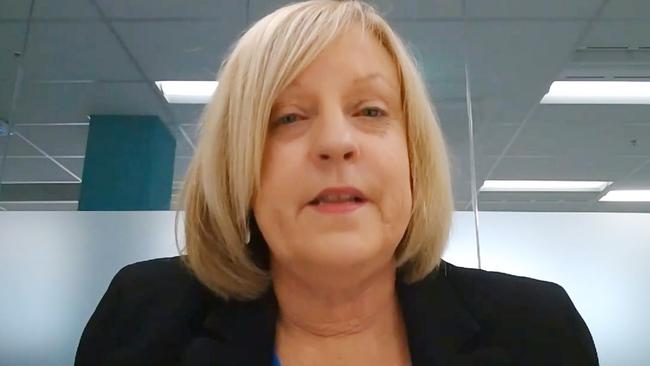
READ the full story here
Eric Sylvers 2.36pm: How Italy is resisting a second wave
Scarred by Europe’s most deadly early outbreak, Italians are being more cautious as the second wave hits.

That shocking experience helps explain why Italy is so far having greater success than many other European countries in limiting the pandemic’s second wave.
Infections in Europe are rebounding partly because millions of people have grown tired of social-distancing rules, mask-wearing and hand-sanitising, and have relaxed their behaviour, health experts said. The public’s fatigue and yearning to get back to normal life are two of the greatest challenges facing governments as they try to keep a lid on infections as winter approaches. — The Wall Street Journal
READ the full story here
Tessa Akerman 1.50pm: Covid rules hit search for missing boy
Victoria’s COVID-19 restrictions are impacting the search for missing autistic teenager William Wall in the Yarra Ranges.
William, who has high functioning autism, was last seen about 6.45am on Tuesday leaving his home in the Yarra Ranges for his daily walk on the Warburton Trail.
The 14-year-old told his family he would be gone for 15 minutes.
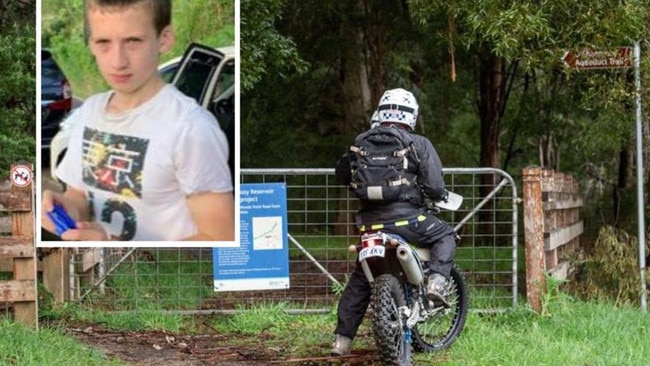
A message on the Yarra Ranges Eyewatch page posted on Tuesday said: “In line with coronavirus restrictions, at this stage we do not require any assistance from the public.”
The message has since been revised to remove mention of coronavirus.
A police spokeswoman said the original post had been a “total distraction”.
“Our total focus here is searching for William and reuniting him with his family,” she said.
READ the full story here
Rachel Baxendale 1.29pm: Barristers join chorus of concern on Andrews’ bill
The state and national peak bodies representing barristers have raised concerns regarding the Andrews government’s coronavirus omnibus bill, saying it enables people who have not committed an offence to be detained on “broad and subjective” grounds.
The Australian reported today that key Victorian crossbenchers have signalled that they will reject the hardline new bill, as an eminent group of 18 retired judges and QCs signed an open letter calling on state parliament to oppose the legislation.
Their letter came as Reason Party leader Fiona Patten and the Greens indicated they would push for amendments to the bill in the upper house, citing concerns about giving authorised officers powers to detain people without court oversight.
On Wednesday, the Victorian Bar and Australian Bar Association confirmed they had contacted Victorian Attorney-General Jill Hennessy to express their concerns regarding the criteria for appointment, and scope of powers, of “authorised officers” as part of the proposed amendments to the Public Health and Wellbeing Act 2008 made by the COVID-19 Omnibus (Emergency Measures) Bill.
“The Victorian Bar’s concerns about provisions of the Omnibus Bill, tabled in Parliament on 17 September 2020, refer principally to the broad and generic criteria on which “authorised officer” appointments may be made under s. 30 of the Act,” the Victorian Bar said in a statement.
“The proposed criteria potentially open the door for those who are not trained as health professionals to be appointed as “authorised officers”.
“This is of significant concern as it is imperative that the qualifications of these officers are relevant to the public health functions that they are intended to perform.
“The Victorian Bar is also concerned with the proposal that people may be detained by authorised officers for failure to abide by a public health direction on the basis of an authorised officer’s “reasonable belief”.
“This standard of validation is broad and subjective. The power to detain should be reviewed against an objective standard, for example, one of “reasonable likelihood”.
“Furthermore, the public interest would best be served if decisions made by authorised officers were reviewed by the Chief Health Officer (or senior delegate) within a short, stipulated period (preferably not longer than 24 hours).
“In the Bar’s view, the power of detention should be expressly based on a test of the least restrictive means reasonably available in the circumstances to achieve public health and safety.”
Wendy Harris QC, President of the Victorian Bar, said: “It is vital that, as the Government crafts powers to assist in the enforcement of public health and safety regulations, the individuals who are empowered to enforce those powers meet appropriate standards of professional knowledge and training, and the enforcement of those powers meets common and well-tested standards of objectivity.”
“This is essential in order that public confidence is retained in the enforcement of public health measures, and that the rights of members of the community are protected,” Ms Harris said.
Matthew Howard SC, President of the Australian Bar Association, said: “The Australian Bar Association fully endorses the Victorian Bar’s position on this important matter.”
“Whilst the Victorian government needs to take appropriate measures to manage this extraordinary health crisis, these should not be implemented without appropriate oversight and protections,” Mr Howard said.
READ MORE: Editorial — No place for bill to create police state
Rachel Baxendale 12.47pm: Fines all round for seven at drinks gathering
Seven people gathered for drinks in a Melbourne apartment and four from different households found in an outer southeastern suburban carpark were among 83 issued with fines by Victoria Police for breaching coronavirus restrictions in the 24 hours to Wednesday.
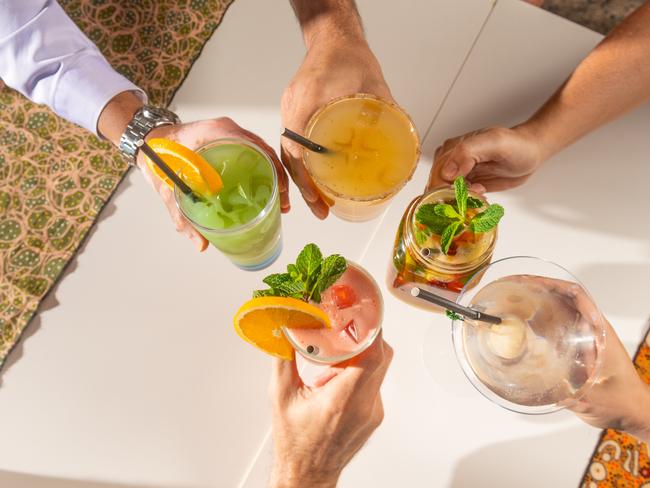
Police said the seven told them they were at a city apartment for “going away” drinks, while the four were found in a car parked at a Greater Dandenong sports centre.
All four were from different households and none had a valid reason for being together.
Under Melbourne’s current restrictions, people may only leave their houses for permitted work, exercise, essential shopping or medical care.
A curfew applies from 9pm to 5am.
Police issued eight $200 fines for failing to wear a face covering in the 24 hours to Wednesday, as well as seven fines as a result of 26,966 checks conducted at vehicle checkpoints.
Another 20 $1652 fines were issued for curfew breaches.
Police conducted 1,863 spot checks on people at homes, businesses and public places in the 24 hours to Wednesday, with a total of 455,214 spot checks conducted since March 21.
READ MORE: Why Qantas’ rugby deal fell over
David Ross 12.37pm: All Covid-affected Victorian paramedics now recovered
Since the start of the pandemic in Victoria 25 members of Ambulance Victoria have tested positive to COVID-19, but as of today, no paramedics are recovering from the virus in a sign the pandemic is improving in the southern state.
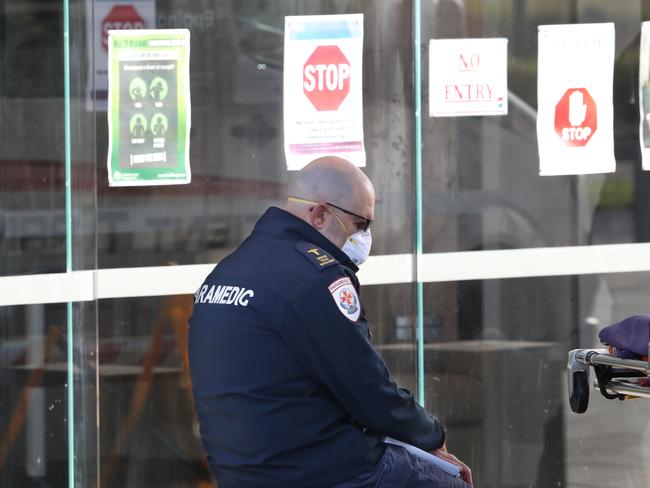
Of the 4500 paramedics and 1200 first responders, 21 are currently off work awaiting test results, or as close contacts, or on COVID-19 related carer’s or school closure leave.
It also captures those who are generally feeling unwell including having cold or flu-like symptoms.
READ MORE: Victoria leads as retail grabs reverse
Remy Varga 11.57am: Bureaucrat ordered to show data to justify curfew
The Victorian bureaucrat who extended Melbourne’s curfew has been ordered to present the data used to justify her decision to the Supreme Court.

Justice Timothy Ginnane has ordered Associate Professor Michelle Giles to give a summary “of the data, including the approximate number of pages of data on which she relied”.
The data is specified to relate to the part of Professor Giles’ statement that said: “I had seen from the data a clear and direct correlation between the effect of
the Stage 4 restrictions and the reduction of case numbers”.
Professor Giles has been dragged into a legal action brought by Liberal Party member and Mornington Peninsula business owner Michelle Loielo against the Victorian government challenging the curfew.
Victoria’s curfew was put in place on August 2 to run from 8pm to 5am.
From September 14 it was loosened by Prof Giles to 9pm to 5am and was due to expire on October 11, the Supreme Court of Victoria previously heard.
Prof Giles is an infectious disease physician who had only been in the deputy public health commander role for nine days when she signed the order extending the curfew, making her the subject of the anti-curfew lawsuit.
The matter is due to next appear before the Supreme Court on Monday September 28.
READ MORE: Andrews’ bill faces crossbench challenge
Anne Barrowclough 11.52am: Ardern wins debate but fails to ignite
Jacinda Ardern has urged New Zealanders to trust her tough response to the coronavirus pandemic, and said her daughter would be proud of her fight against climate change as she went head to head with National Party rival Judith Collins in their first leaders’ debate on Monday.

Three weeks out from the NZ General Election on October 17, the two leaders were polite but showed little passion in a 90 minute debate that largely failed to ignite.
Speaking at the TVNZ studios without an audience, Ms Ardern and Ms Collins, nicknamed ‘Crusher,’ clashed on the coronavirus, climate change and child poverty, but both were criticised for their vagueness on policy details.
READ the full story here
Remy Varga 11.43am: Pakula says DHSS responsible for hotel scheme
Victoria’s Jobs Minister Martin Pakula has effectively rebuffed claims there was shared accountability between departments for hotel quarantine, saying the Department of Health held “overall responsibility” for the program, an inquiry has heard.
Mr Pakula said it was “quite clear” to him that from March 28, the Department of Health and Human Services was the control agency for the bungled program.
“I wouldn’t seek to characterise it in any way other than … there was, to my understanding, one department which was in charge, if you like, and had overall responsibility,” he said.
“My department, whose role was to assist the control agency, which was in this case DHHS.”
The Department of Jobs, Precincts and Regions held responsibility for contracts with private security guarding returned travellers at the hotel quarantine program.
Mr Pakula’s comments follow testimony given by DHHS Secretary Kym Peake on Tuesday, who said there was shared accountability between agencies.
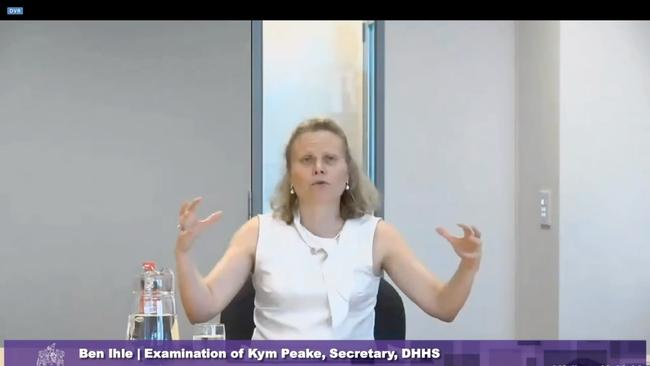
The Jobs Minister told the inquiry on Wednesday that he thought it would have been preferable if the agency with overall responsibility had also managed the security contracts.
READ MORE: Paul Kelly — Three challenges loom for PM, Frydenberg
Robyn Ironside 11.25am: Qantas dumps Wallabies in sponsorship shake-up
Qantas has announced it will end its 30-year partnership with Rugby Australia as part of a major overhaul of the airline’s sponsorship arrangements.
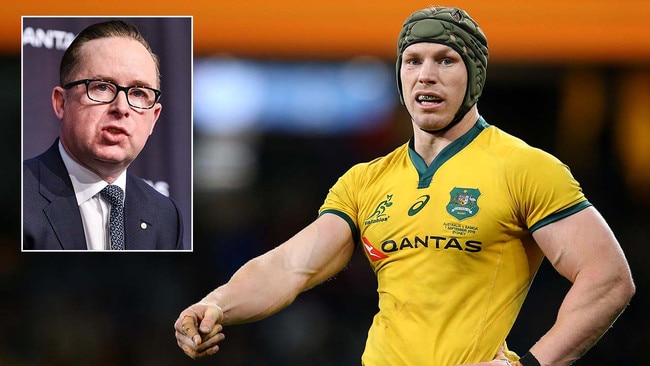
READ the full story here
David Ross 11.18am: Six new cases in NSW, all from hotel quarantine
New South Wales has reported six new cases of COVID-19 but all cases were identified in travellers in hotel quarantine.
No new cases were reported in the community and the last case in NSW attributed to an unknown source was on September 7
NSW chief health officer Dr Kerry Chant said while there had been cases since September 7 all had been attributed to known cases and clusters.
Six new cases of #COVID19 were diagnosed in the 24 hours to 8pm last night.
— NSW Health (@NSWHealth) September 23, 2020
All six cases are returned overseas travellers in hotel quarantine. pic.twitter.com/xN2ZRVBrHo
NSW is treating 74 people for COVID-19 of which three are in intensive care. One person is on a ventilator in intensive care.
The new cases in quarantine take the state’s total to 4023 and come after a higher day of testing, with 16,759 tests performed in the 24 hours to 8pm last night.
But Dr Chant warned it was “no time for complacency” and asked the community to maintain vigilance as the state moved into the school holiday period.
“Anyone with any symptoms however minimal please come forward,” she said.
Today’s news supports the reopening of the border test that had been set by South Australia of no cases of community transmission.
Today’s result in NSW marks the second day in a row with no community transmission of COVID-19. The last time NSW had consecutive days without community transmission was July 3, 4, and 5.
Dr Chant welcomed the SA border reopening but said it was concerning that borders could be “opened and shut at a whim”.
“I’d like to think we’ve demonstrated our capacity that if we do have an outbreak we can get on top of it,” she said.
NSW Health has been attempting to contact passengers who took nine trips with a Sydney taxi driver earlier in September, however it is unclear how many remain uncontracted.
Dr Chant said they had tracked down some people but the COVID-safe app had not proved useful.
“It wasn’t useful in this circumstance but we do regularly look at the COVID-safe app,” she said.
READ MORE: Where most Aussies want to holiday
Remy Varga 11.14am: Pakula ‘can’t recall’ how he learned of hotel jobs
Victorian Jobs Minister Martin Pakula says he can’t recall how he learnt his department had engaged private security to supply guards at the hotel quarantine program, saying it could have been through media reports.
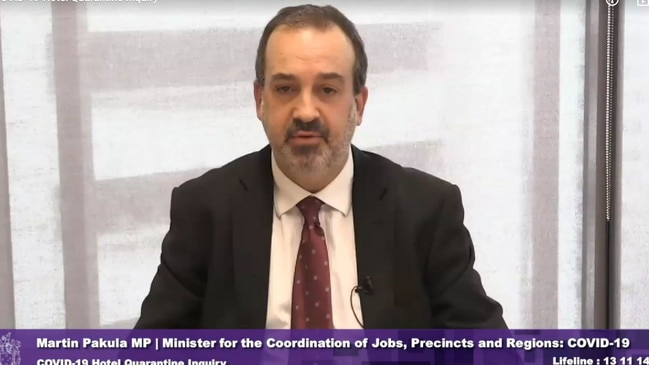
READ the full story here
Sarah Elks 11.09am: Palaszczuk urges rethink on ADF troops for border
Queensland Premier Annastacia Palaszczuk has “urged” the federal government to reconsider its decision to withdraw ADF troops from the Queensland border from the end of the month.

Ms Palaszczuk said the Morrison government needed to explain why the troops could stay on the Victoria border, but not other states.
“I’m very disappointed that the federal government is looking at withdrawing ADF support at the end of September, some other states are negotiating mid-October,” Ms Palaszczuk said at a press conference in Townsville.
“We’ll also be looking at negotiating some further extensions there.”
“Our borders have kept Queenslanders safe, and we’d like to see that continued support from our (ADF).”
“(The federal government needs to say) why the ADF support will still continue on the Victorian border, if it can’t continue on other borders across Australia.”
Ms Palaszczuk said the decision would mean it would strain the state’s resources, and other people would need to be trained how to man the borders.
“It’s going to stretch our resources, but we will cope as we always do when we deal with natural disasters … I’d urge the Commonwealth government to reconsider their decision.”
READ MORE: Kathmandu profit hit by COVID
Anthony Piovesan 10.58am: Andrews on track to ease restrictions
Victoria’s health authorities are confident Melbourne can ease out of its lockdown earlier as the city’s 14-day average cases dipped below 30.
While announcing 15 new cases and five more deaths, deputy chief health officer Allen Cheng said “we’re doing better than we had hoped”.
“The easiest and hardest thing about this is this super-spreading event phenomenon. If we keep a lid on all the last cases, it could actually fall fairly quickly,” he told reporters on Wednesday morning.
Metropolitan Melbourne’s 14-day, now at 29.4, has exceeded the state’s 30 to 50 case range required to move to the second step on the government’s COVID-19 road map recovery plan from September 28.
The city must get to an average of below five cases in order to completely reopen, and prof Cheng said Melbourne was “on track” to achieving that figure.
“We’re tracking well at the moment, but things can change very quickly. I think it’s hard to predict the future … but at the moment things are encouraging that we might get there a little earlier. We need to see in the next week or so,” he said.
Victorian Premier Daniel Andrews was also very hopeful, maintaining the controversial lockdown “was working”.
“This is a day when all Victorians can see that this strategy is working,” he said.
“ Because of your hard work, because of all of the things that you‘re doing and giving up, the numbers are coming down. And as they continue to fall, we will be able to find that COVID-normal.
“Because once you get the numbers low, you can keep them low. That’s the experience, that’s what we’re aiming for and that’s what the strategy is fundamentally delivering.”
– NCA Newswire
Charlie Peel 10.25am: Premier won’t reveal borders poll data
Annastacia Palaszczuk is refusing to publicly release $528,000 taxpayer-funded polling gauging voter sentiment on COVID-19 restrictions.
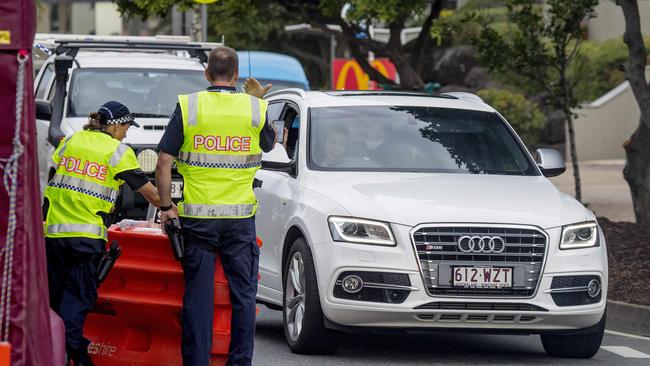
The Premier, who on Tuesday announced some border restrictions to northern NSW residents would be eased on October 1, said she would release the government’s research only if other states released theirs.
Labor’s critics have accused the Premier of “populism” ahead of the October 31 election and basing coronavirus restrictions on political decisions rather than scientific advice.
“Every state does it,” Ms Palaszczuk said when asked about the polling on Tuesday.
“The federal government has done its research, that’s come into national cabinet. If every other state does, yes we will (release it).“
READ the full story here
Rachel Baxendale 10.16am: ‘Historic corrections’ for Victorian numbers anomaly
Victoria’s cumulative number of coronavirus cases has now reached 20,100 — an increase of 24 since Tuesday.
This is despite only 15 new cases in the 24 hours to Wednesday.
Premier Daniel Andrews said it was due to a “small number of historic corrections”.
Of Wednesday’s 15 new cases, 10 have so far been linked to known outbreaks, while five remain under investigation.
Five deaths reported in the 24 hours to Wednesday have brought Victoria’s coronavirus death toll to 771.
The latest deaths include those of a man in his 70s, two women in their 80s, a man in his 90s and a woman in her 100s.
All five were linked to aged care, bringing Victoria’s aged care coronavirus death toll to 612.
There are 75 people in Victorian hospitals with coronavirus, including eight in intensive care, of whom six are on ventilators.
This compares with 83 in hospital on Tuesday, including eight in intensive care, of whom five were on ventilators.
Victoria’s 15 new cases on Wednesday come after 15,741 tests were processed in the previous 24 hours, with a total of 2,609,485 tests processed since the pandemic began.
The positive test rate for Wednesday’s figures is 0.095 per cent — the lowest positive test rate since the same number was achieved on June 24.
There have now been 4268 cases for which contact tracers have been unable to establish a source of infection since the pandemic began – the same number as on Tuesday.
The total number of active cases in Victoria is now 554 — a decrease of 66 since Tuesday.
This includes 14 active cases in regional Victoria — down from 20 on Tuesday.
There are now 284 case linked to aged care — or 51.3 per cent of Victoria’s total active cases — down from 328 active cases on Tuesday.
There are 73 active cases in health workers, including aged care and disability workers — a decrease of one case since Tuesday.
There are four cases linked to residential disability accommodation, all of them in staff. This is the same number of cases as on Tuesday.
READ MORE: Mirko Bagaric High Court likely to ‘free’ Covid’s political prisoners
Robert Gottliebsen 10.01am: Who else will stand against Andrews’ outrage?
What makes me optimistic about Australia is that when Victorian government proposed legislation that set the state on a course that endangered democracy in the nation, 18 good men and women – all QCs, with a former High Court Judge and two former Federal Court judges – refused to do nothing.
.

The QCs, realising swift action was required quickly, came together to warn of the dangers posed by the unprecedented legislation proposed by the Victorian government as soon as they read details of that legislation in my commentary on Monday.
READ Robert Gottliebsen’s full commentary here
Sarah Elks 9.26am: ADF Queensland border withdrawal ‘disappointing’
Queensland Deputy Premier Steven Miles says it’s “disappointing” Prime Minister Scott Morrison had withdrawn the support of the defence force on the state’s closed borders.
Mr Miles said the decision emphasised that it was “no secret” Mr Morrison “doesn’t like our strong border policies,” and said it was a shame the Australian Defence Force soldiers were being used as a “bargaining chip” by the federal government.
“Our policies have worked and they should back off,” Mr Miles said.
“His withdrawal of the support of the defence force is disappointing, it’ll make the job of our police force even harder,” Mr Miles said.
The defence force will continue to help with hotel quarantine, Mr Miles said.
Mr Miles also took a swipe at the federal government’s COVID-19 tracing app, describing it as not “particularly useful” or trustworthy.
He said almost all of Queensland’s cases had been manually contact traced, without help from the app, because simply not enough people had downloaded it to make it trustworthy.
“The app itself hasn’t been particularly useful … the issue was simply not enough people downloaded the app,” he said.
Mr Miles said questions should be asked of the federal government about whether the app had been properly distributed and marketed.
Zero new cases recorded in Queensland
It comes as Queensland recorded zero new cases of COVID-19 overnight, and authorities are just one day away from confirming recent clusters have been quelled.
Mr Miles said the state now had just five active cases, and said that was a remarkable effort given at one stage there had been 55 cases linked to the Brisbane Youth Detention Centre and correctional training centre facility clusters.
Mr Miles said authorities would be able to say tomorrow if those clusters had been successfully solved.
Queensland has had a total of 1153 coronavirus cases, and 1,077,563 tests have been conducted.
Rachel Baxendale 9.24pm: Andrews to address media at 10am
Victorian Premier Daniel Andrews is due to address the media alongside
his Mental Health Minister Martin Foley at 10am.
David Ross 9.11am: NBN upgrade ‘all part of the plan’
Communications minister Paul Fletcher has spruiked the move from the National Broadband Scheme to borrow $3.5bn on commercial markets to fund upgrades to the fibre optic network.
Some have criticised the move as a consequence of the government’s failure to stick with Labor’s original plans.
But Mr Fletcher, speaking on ABC News Breakfast, said the upgrade was all part of the plan.
“With the volume rollout now largely completed, now there’s the opportunity to move to the next stage and this is very much consistent with what we said back in 2013, with our strategic review of the NBN,” he said.
“If we’d stuck with Labor’s plan, it would have been almost 5 million fewer homes. But, secondly, what this now allows is for more homes to be able to, should they choose to, order a higher-speed service.”
Mr Fletcher, who was previously infrastructure minister, rejected suggestions he knew or should have known about the deal highlighted in the recent auditor general report that saw taxpayers pay ten times the amount recommended for land acquired for the Western Sydney airport.
“The report is critical of the department for concealing information, not just from the minister but, indeed, from senior officials of the department itself,” he said.
“The Auditor-General, I think, has rightly identified that the department did not do the right thing. And the information that was provided to senior officials of the department was inadequate, by less senior officials, let alone what was provided to the minister.”
READ MORE: $4.5bn to put rocket under NBN
David Ross 8.54am: ‘Someone must own up on hotels’: Crossbencher
A key Victorian upper house crossbencher says someone from Daniel Andrews’ government must take responsibility for the state’s quarantine “disaster”.
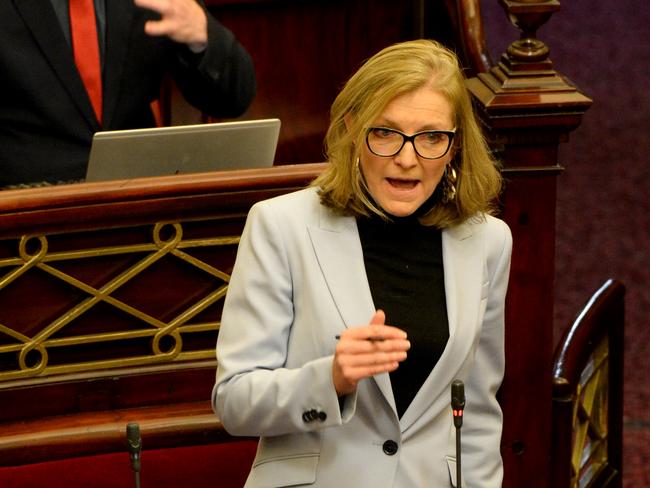
Founder and leader of the Reason Party, Fiona Patten said it was highly unlikely no one knew about the use of private security guards in quarantine hotels.
“I understand that there was a lot of urgency and people had to act quickly, no doubt mistakes were made,” she told ABC Radio National this morning.
The Premier is set to appear before the inquiry into the quarantine system later this week.
But Ms Patten said either Mr Andrews or Health Minister Jenny Mikakos must take responsibility.
“It would be unheard of that this all this would have happened without ministerial involvement,” she said.
The Victorian government does not control the state’s upper house and relies on the vote of Ms Patten, among others, to pass legislation.
Ms Patten said the move from the Andrews government to create coercive powers to allow the health department to detain people who do not self-isolate was uncalled for.
“I haven’t seen any evidence that we need this expansion of powers,” she said.
READ MORE: Hotel mystery — Don’t know, don’t ask, don’t care
David Ross 8.24am: COVAX deal ‘additional security’: Hunt
Greg Hunt has said Australia’s $120m commitment to the COVAX deal gave the country another opportunity for a vaccine to COVID-19.
“It gives additional security for Australia and for the world, to the reason why it is important, we want to have as many eggs in the basket as possible,” the Health Minister told Seven’s Sunrise this morning.
Mr Hunt said that with the exception of Victoria, Australia had yesterday recorded no new cases of community transmission.
“In Victoria, now we’re beginning to see some very real progress, and that will hopefully allow the road map to be significantly accelerated,” he told ABC News Breakfast.
“We want to give Australians back the best mental health conditions, the best ability to get their lives back, but in a COVID-safe way.”
“We see Europe, we see the agony there, and the United States, and so many other places, and Australia is a world away. We’re in a very different position, and that’s the result of the hard work that Australians and the testing, the tracing, the border control, and the difficult restrictions.”
Speaking on Nine’s Today, Mr Hunt said that the latest news gave credence to the case of reopening state borders outside of Victoria.
“There is progress and we should welcome that progress but we would like to see ultimately a national travel bubble outside of Victoria and then once Victoria is safe and recognised by the States as being safe, then we can get back to full movement in Australia,” he said.
READ MORE: Vaccine deal means ‘no one left out’
Rachel Baxendale 8.16am: Victoria records 15 new cases, five deaths
Victoria has recorded 15 new coronavirus cases and five deaths in the 24 hours to Wednesday.
#COVID19VicData: Yesterday there were 15 new cases & the loss of 5 lives reported. Our thoughts are with all affected.
— VicGovDHHS (@VicGovDHHS) September 22, 2020
The 14 day rolling average & number of cases with unknown source are down from yesterday as we move toward COVID Normal. Info https://t.co/eTputEZdhs #COVID19Vic pic.twitter.com/aMHDJvWfWk
The 15 new cases follow 11 new cases on Monday — the lowest daily case number since June 16 — with 14 new cases on Sunday and 28 on Tuesday — 24 of which were spread across 11 clusters in aged care facilities.
The five deaths bring Victoria’s coronavirus death toll to 771.
All but 19 of these deaths have occurred as a result of the state’s second wave of coronavirus cases, sparked by breaches in the Andrews government’s hotel quarantine program.
Melbourne’s 14 day daily average number of new cases is now 29.4, down from 32.8 on Tuesday and 49.6 last Wednesday.
This compares with a 14 day daily average of 1.1 in regional Victoria — down from 1.6 on Tuesday.
There have been 41 cases with an unknown source of infection in metropolitan Melbourne in the most recent fortnight for which this statistic is available, compared with 45 in Tuesday’s figures.
Regional Victoria has had no unknown cases over the same fortnight, which spans September 7 to September 20.
In order for Melbourne to move to its next step of relaxing coronavirus restrictions by next Sunday September 28, the 14-day average number of new cases needs to be 30-50 — a threshold already surpassed.
This will enable public outdoor gatherings of up to five people from up to two households, the resumption of childcare, and a staged return to the classroom for Prep to Grade Two and VCE students.
For the following step, which would see Melburnians released from a stay-at-home lockdown and a curfew by October 26, the statewide 14-day daily average needs to fall below five cases, with fewer than five cases with an unknown source over that fortnight.
READ MORE: Andrews detain bill faces crossbench defeat
David Ross 7.30am: SA borders to open to NSW as Premier lets slip on numbers
South Australian Premier Steven Marshall has confirmed no new community transmissions had been recorded in NSW up to 7pm on Tuesday night as the state moved to reopen its borders.
SA had required no new community transmissions in a 14-day cycle to reopen its borders to NSW.
Mr Marshall let slip the NSW infection news speaking on Nine’s Today Show, where he said the move to reopen was based on health advice and “strong economic benefits”.
“We do need to be careful. Our number one priority is to keep people safe here in SA. SA’s done particularly well with a very low infection rate,” he said.
“As of midnight tonight we are open to NSW, ACT, Northern Territory, WA and Tasmania. Things are looking much better in Victoria but I think changing the border arrangements there are still a few weeks off.”
But Mr Marshall warned the SA government could close borders again.
“I can’t say we’ll never close off the borders again because we don’t know what is going to happen,” he said.
“But what we do know is the public health administration in NSW is absolutely extraordinary, good data flow so we should be able to give people plenty of advice if we do need to make further border announcements.”
He said the SA government would retain its Victorian border restrictions as the health advice “is very strongly that we should keep the border arrangement in place.”
“We do have that border community 40km either side of the South Australian-Victorian border but we would obviously like to remove some of those restrictions when it’s safe to do so,” he said.
READ MORE: Mental health crisis bill $114bn
David Ross 7.16am: Hanks hits Gold Coast after ending quarantine
Tom Hanks has surfaced on the Gold Coast after being allowed to spend his 14-day quarantine in a $6000 a night mansion in Broadbeach.
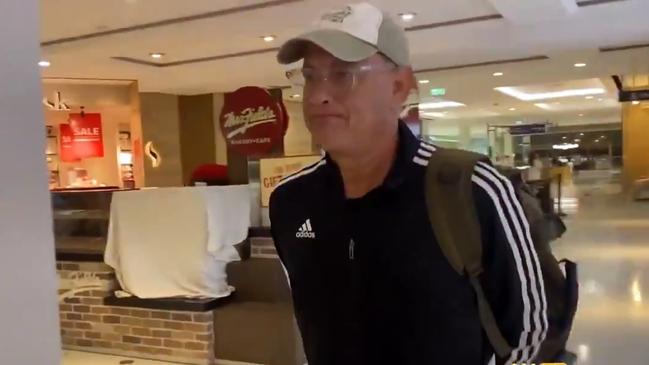
The media snapped Mr Hanks while shopping on the Gold Coast,
Mr Hanks was allowed to travel to Australia two weeks ago by the Queensland government so he could resume his role as the star of Baz Luhrmann’s Elvis biopic.
Mr Hanks and wife Rita Wilson both contracted COVID-19 in March while filming on the Gold Coast with Luhrmann at the time.
READ MORE: Albrechtsen — If Hanks and Warne can fly, why can’t Aussies?
David Ross 7.12am: US retailer to offer drone-delivered home-testing kits
US retail giant Walmart in response to the pandemic will roll out drone delivery home-testing kits from October, announcing the move on Tuesday.
The drones will deliver COVID-19 testing kits to homes within 1km of Wallwart’s supercentre stores in Northern Las Vegas, Nevada and in Cheektowaga in New York State.
The announcement comes as more than 6.8m cases of COVID-19 have been confirmed since the start of the pandemic, with global deaths set to reach 1m as the full spread of the pandemic is now accelerating in areas with limited testing.
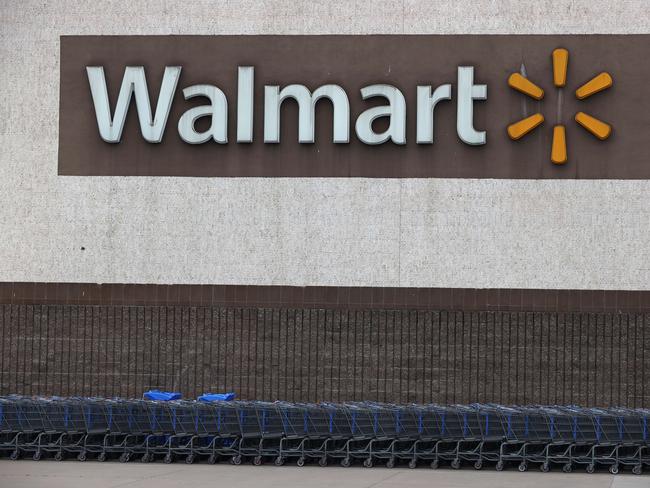
The United States leads the world, followed by Brazil, India, and Mexico, and the United Kingdom, but the real toll is likely to be far higher.
Peru leads the world in deaths per million caused by COVID-19, followed by Belgium, Bolivia, Chile and Spain.
The United States has passed a grim toll with more than 200,000 Americans now dying of COVID-19 with experts warning deaths could double by the end of the pandemic.
Speaking in March at the White House president Donald Trump said if the US were able to hold deaths below 200,000 it would have done “a very good job”.
Speaking at the UN overnight president Trump demanded China be held accountable for the coronavirus pandemic, with the United State’s first case arriving from Wuhan on January 21.
However, the Chinese representative rejected “the baseless accusations”.
Brazil’s president Jair Bolsonaro, who contracted COVID-19, defended his response to the virus saying his government avoided “the greater evil” of economic catastrophe.
Brazil holds the ignominious record of the second-highest death toll of any country for COVID-19.
More than 137,000 Brazilians have died of COVID-19.
Restrictions to fight COVID-19 have returned in the UK, with prime minister Boris Johnson, warning that if they weren’t adhered to, he wouldn’t hesitate to order another lockdown.
Mr Johnson warned the restrictions will remain in place for six months if things don’t improve.
The restrictions come as the UK records its highest daily tally of COVID-19 since May.
Case numbers across Europe continue to surge, with France, Spain, and the Netherlands all hard hit in recent day.
The Netherlands has hit a new weekly record, with more than 13,471 people testing positive to the virus.
France has required arrivals to Paris from hot spots to undergo mandatory COVID-19 testing.
A meeting of the EU Council in Belgium has been postponed after president Charles Michel was forced into quarantine after his bodyguard tested positive to COVID-19.
Guatemalan president Alejandro Giammattei has also tested positive to the virus but told the media he was “feeling fine” despite being high risk.
Staff writers 6.00am: US toll passes 200,000, UK restrictions return
The US has reached another grim milestone with the death toll passing 200,000 as Americans enter another winter season.
The US leads the world in both total confirmed coronavirus cases and deaths, according to Johns Hopkins University data, More than 6.8 million cases have been reported in the US since the outbreak began.
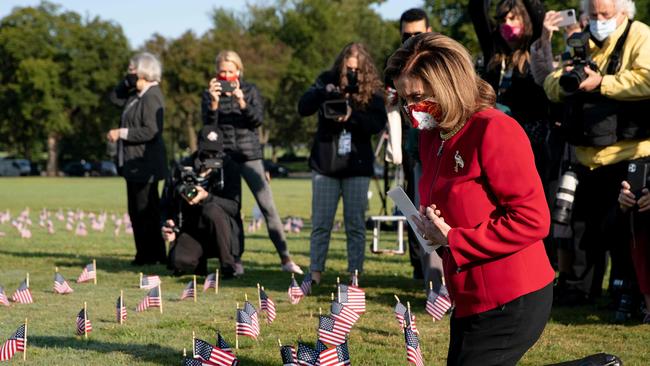
“It’s a sobering reality. It’s hard to get past that,” Michael Lauzardo, deputy director of the Emerging Pathogens Institute at the University of Florida, told the Wall St Journal. “Behind all those numbers are 200,000 lives, 200,000 families, 200,000 groups of loved ones and communities. It’s a huge disaster on so many levels.”
In the UK, Prime Minister Boris Johnson announced the return of restrictions, warning that if they weren’t adhered too, he wouldn’t hesitate to order another lockdown. Restrictions include closing pubs and restaurants at 10pm, mandatory wearing of masks in taxis and hospitality venues and a return to working from home when possible.
With cases now at 4000 a day and rising, Mr Johnson said in a televised address to the nation that the country faced “unquestionably difficult months to come”.
Warning that the virus was beginning to spread in an “exponential way,” he said there had been too many breaches of rules that had allowed our invisible enemy to slip through undetected.”.
Mr Johnson appealed to the public to “summon the discipline, the resolve and the spirit of togetherness that will carry us through.”
With The Times, WSJ
READ MORE: Sweden ‘has beaten the virus’
Natasha Robinson 5.45am: Warning over Covid spike in Parkinson’s
The nation’s leading institute of neuroscience and mental health, the Florey, is warning of a wave of neurological consequences from COVID-19, including a big escalation in the incidence of Parkinson’s disease.
The neural inflammation that is experienced in many sufferers of COVID-19 is a key risk factor for developing Parkinson’s, it warns.
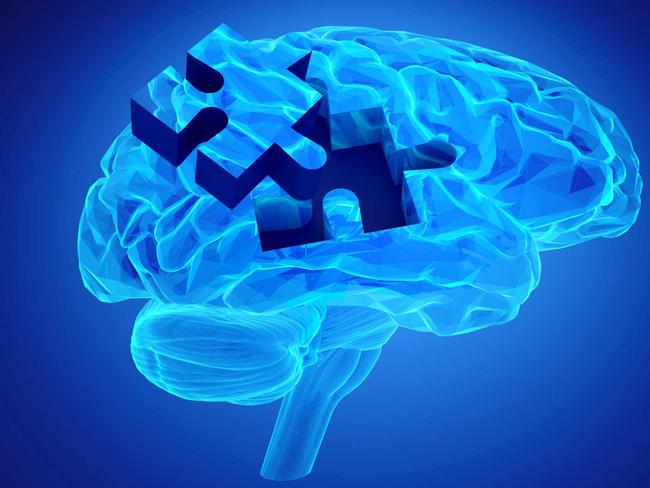
After the Spanish flu pandemic, there was a tripling in the incidence of Parkinson’s, and The Florey warns the same thing is likely to happen with the COVID-19 pandemic. It’s calling for widespread screening and early treatment to address the feared wave of neurological disease.
Researchers at the Florey have published a paper in the Journal of Parkinson’s disease warning that the degenerative illness is likely to represent the “third wave of the COVID-19 pandemic”.
They argue that the neurological symptoms of COVID-19, which range from encephalitis to loss of sense of smell, are likely to be under-reported.
The paper’s co-author Leah Beauchamp said it was estimated that three out of four people with COVID-19 experienced neurological symptoms from the virus.
“There’s this concept in Parkinson’s disease called the dual hit hypothesis,” said Ms Beauchamp. “Essentially, a person is exposed to a pathogen much like COVID, or a virus. And if it gets into the brain, it triggers a neuro-inflammatory response. And this response essentially primes the brain so that later in life or in over the coming years, if a person then encounters another hit to the brain, whether that be from ageing or from exposure to another virus or another toxin, the brain is primed, and ready to overreact. And that over-reaction leads to cell death.”
READ the full story here
Remy Varga 5.30am: Don’t know, don’t ask, don’t care
Two senior bureaucrats who had critical responsibilities for Victoria’s troubled hotel quarantine program have joined police, emergency chiefs and key public servants in insisting they did not know who made the decision to deploy the private security guards that contributed to the state’s devastating second wave.
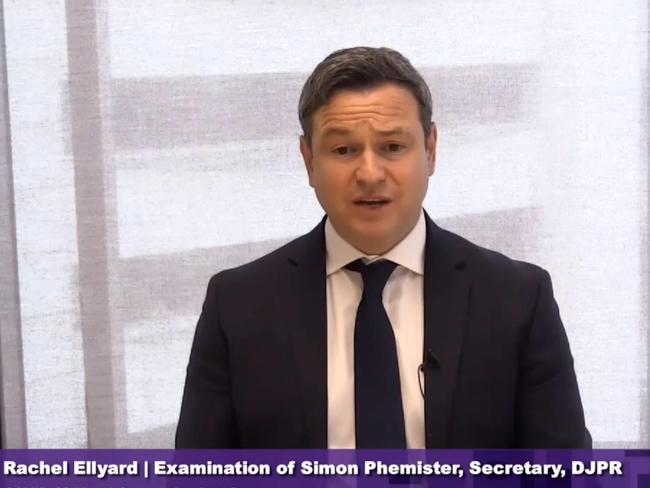
Kym Peake, secretary of the Department of Health and Human Services, which as the control agency had “overall responsibility” for the pandemic response, said she was not aware who made the decision to use security guards and nor was she consulted.
Simon Phemister, secretary of the Department of Jobs, Precincts and Regions, said he commissioned the contracting of private security after a March 27 meeting chaired by Emergency Management Commissioner Andrew Crisp, Victoria Police and officials from various departments. But he said he did not know who made the decision to use guards.
Their evidence came after Victoria’s top bureaucrat, Chris Eccles, on Monday said he was unaware who made the decision, and earlier testimony by state Chief Health Officer Brett Sutton that he did not find out about the use of private security until after the outbreaks.
READ the full story here




To join the conversation, please log in. Don't have an account? Register
Join the conversation, you are commenting as Logout